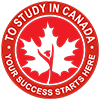Academic Program

Bachelors Degree
A bachelor’s degree (also called as ‘undergraduate’) signifies completion of four years of full-time post-secondary education. The duration of undergraduate courses in Canada is four years. Each academic year comprises two semesters; students take about 18-20 credits per semester Subject areas most often include traditional academic subjects in Business, General Sciences, Engineering, the Arts, or Humanities. In this arrangement, students are expected to gain general and foundational knowledge over their first one or two years, and then specialize in a concentration called a major.
Many students transfer credits to university after one or two years of full time study at a college. There are over two hundred Bachelor degree programs offered in various universities in Canada and students can make the choice based on what interests them most. Canadian universities offer high standards of education in their academic programs and a bachelor degree from Canada is therefore globally recognized for its quality.
Admission into a bachelor’s degree program requires minimum 12 years of secondary school education. TOEFL/IELTS scores are required; estimated TOEFL score range is 83, and IELTS score range is 6.5.
Post completion of their graduation, students can apply for a work permit under the Post-Graduation Work Permit Program (PGWPP). A work permit under the PGWPP may be issued for the length of the study program (minimum course duration should be eight months). A student can also opt for a Master’s program.

Masters Degree
A Masters degree is a great way to increase your subject area expertise or gain insights into an industry for your future career success. We provide end-to-end services for Master’s applicants, where we work with you from helping you plan and strategize programs that align with your professional objectives, statement of purpose to the preparation of application components.
A Master’s Degree (also called ‘postgraduate’) it is advanced degree, which you can only study once you have graduated with a four year Bachelor’s Degree. Master Degree typically takes one to two years to complete but PHD last longer between 4 to 7 years to complete. Master’s Programs often expect the student to propose and conduct significant original research culminating in a major project, thesis, and/or comprehensive examination.
Canada also has relatively straight forwarded means of transition from a student status to that of employment, after graduation, Thus making it easily possible for recent graduates to take up permanent residency with viable employment to back up.
Different master’s courses in Canada have different eligibility criteria. Most educational institutions require qualifications comparable to a Canadian Bachelor’s degree which means a completion of 10+2+4 pattern of formal education. Along with this, depending upon the Master’s course applied for, students may be asked to furnish relevant work experience in the field of their study. Also, students whose first language is not English, shall be asked to appear for an English proficiency exam, generally IELTS or TOEFL. Some institutions may also ask for written samples or copies of your published work as a part of their eligibility criteria. GMAT /GRE test scores can be an entry level requirement for a few institutions for Management / Engineering specific programs.

Post-Degree Diploma/ Post Graduate Diploma
Diploma from a University is all about concentrating your studies in the one specialization and makes the candidate more employable. It requires a specific number of learning credits to be completed by students to award a diploma. The diploma are mostly 1 or 2 year programs.They are the best path to a job, or a master’s program. If the course duration is of 1 year, you will get another one year to stay back and have an opportunity to gain one year of experience. If the course is of two years, the stay back duration is three years. That is the reason most students choose two year Diploma Programs in Canada.
Benefits of doing Diploma courses from Canadian University:
-Affordable tuition fees
-It is less expensive as diploma courses duration is less
-One can avail a part time work
-Canada education system has co-op programs known as work internship programs
-Successful completion of the diploma can help you land a job and then you can apply for residency to live in Canada

What is Co-op program option in Bachelors/ Masters Degree
Co-op is an opportunity to integrate career-related, full time, paid work experience into your academic studies. Co-op is a work term provided as part and parcel of the course curriculum, which is optional. It provides an excellent opportunity to students to gain first hand practical experience related to the field of specialization. Students can gain on-the-job experience while continuing to study . Co-op provides full time opportunities that last for 12 to 17 weeks.
Co-operative work programs, combine courses in many subjects with relevant work, giving students an invaluable head start with their careers. This assists International students in connecting with the Canadian job market and developing a network with the Canadian companies.
HOW CAN WE HELP
Let us know your career goals and help you execute your vision for your future. Contact us for more information now.
